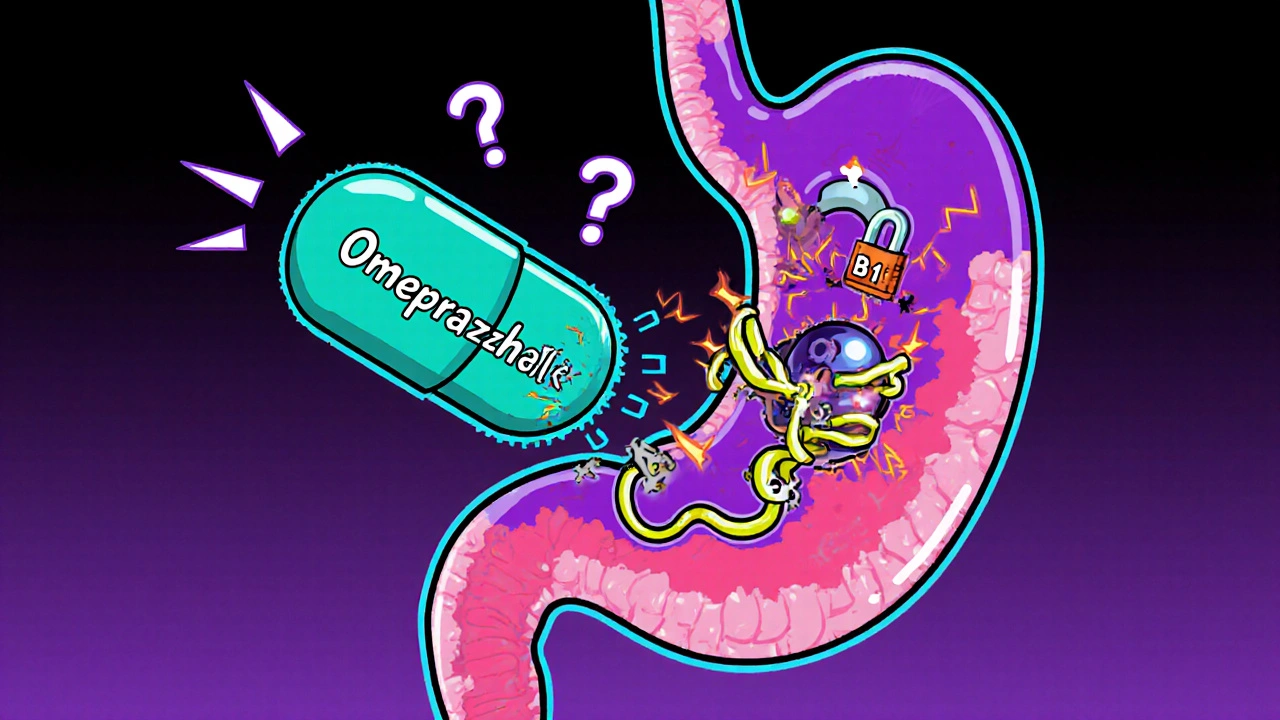Vitamin B12 Deficiency Symptoms: What to Watch For
When your body runs low on a single nutrient, the impact can be dramatic. vitamin B12 deficiency symptoms, the physical and mental signs that appear when the body lacks enough cobalamin. Also known as cobalamin deficiency signs, they can affect energy, nerves, and blood health. Recognizing these clues early can keep you from slipping into deeper health issues.
One of the first clues is a sudden drop in energy. You might feel unusually tired, weak, or short of breath even after a full night’s sleep. Anemia, a condition where blood lacks enough healthy red cells. Often a direct result of low B12, anemia shows up as pale skin, rapid heartbeat, and dizziness. In many cases, the fatigue you notice is actually your body signaling that it can’t carry enough oxygen.
Beyond the blood, the nervous system sends its own warnings. Numbness or tingling in the hands and feet, a sensation doctors call "peripheral neuropathy," can appear without any injury. Neurological issues, symptoms such as numbness, balance problems, and memory lapses caused by nerve damage. If you find yourself forgetting names, struggling with concentration, or experiencing a sense of clumsiness, it may be the brain reacting to a shortage of B12.
Another hidden player is Pernicious anemia, an autoimmune condition that blocks B12 absorption in the stomach. This disorder doesn’t just lower B12 levels; it directly fuels the anemia and neurological symptoms that follow. People with pernicious anemia often need lifelong injections because oral supplements can’t bypass the absorption block.
The diet side of the story matters, too. Vitamin B12 is abundant in animal products—meat, fish, dairy, and eggs. If you follow a strict vegan or vegetarian plan without fortified foods or supplements, you’re walking a thin line. Even after switching to a plant‑based diet, occasional low‑B12 labs can pop up, bringing the same fatigue, mood swings, and tingling described above.
Age is a silent risk factor. As you get older, stomach acid production drops, making it harder for your body to free B12 from food. Combine that with common medications like proton‑pump inhibitors, and the deficiency risk climbs. For seniors, even mild symptoms can become serious enough to cause falls or cognitive decline.
Testing is straightforward: a simple blood test measures serum B12, and a follow‑up homocysteine or methylmalonic acid test can confirm a functional deficiency. If the numbers are low, treatment usually starts with high‑dose oral supplements or intramuscular injections, depending on the cause. Most people notice improvement within weeks—energy returns, skin color normalizes, and the tingling fades.
Putting the pieces together, vitamin B12 deficiency symptoms are a web of fatigue, anemia, and nerve‑related signs that often point back to diet, age, or autoimmune issues. Understanding how each symptom ties to underlying causes helps you decide when to seek a test and what treatment might work best.
Below you’ll find a curated list of articles that dig deeper into each of these areas—dietary tips, detailed symptom guides, diagnosis methods, and treatment options. Whether you’re spotting the first signs or managing a long‑term condition, the resources ahead give you practical steps to take control of your health.

Omeprazole and Vitamin B12 Deficiency: Understanding the Connection
Learn how long‑term omeprazole use can lead to vitamin B12 deficiency, who’s at risk, how to spot early signs, and practical steps to stay healthy.
